Mathematics Reintroduced in Arts and Social Sciences Under Revised CBC Policy
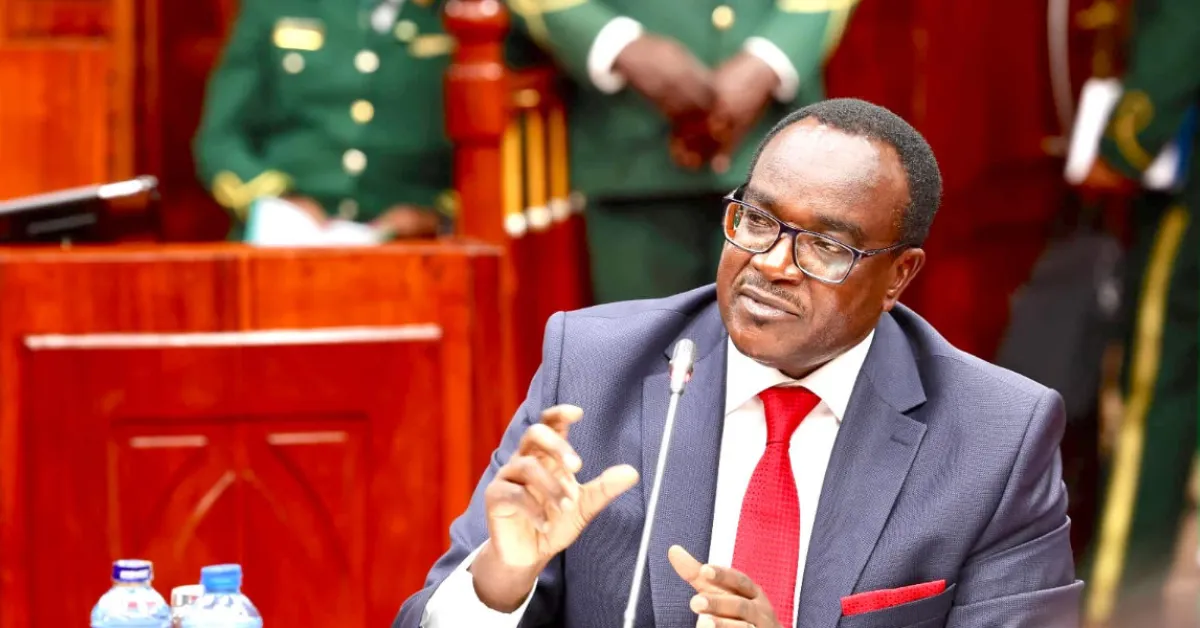
Kenya’s Ministry of Education has reversed its previous stance and mandated mathematics education across all senior secondary school pathways.
The announcement, made by Cabinet Secretary Julius Ogamba during the National Conversation on the Competency-Based Curriculum (CBC) on Thursday, marks a decisive response to widespread concerns regarding the initial curriculum design. The reversal directly addresses the former policy that allowed students in the Arts and Sports Science and Social Sciences tracks to opt out of mathematics.
The original framework, part of the broader CBC initiative, divided students into STEM (Science, Technology, Engineering, and Mathematics), Arts and Sports Science, and Social Sciences pathways. Mathematics was initially compulsory only for the STEM pathway. This decision underscores the government’s commitment to incorporating public feedback into education policy and reaffirms the critical role of mathematics in developing crucial analytical and problem-solving skills applicable to all fields of study.
Ogamba emphasises that this revised approach will equip students with foundational mathematical literacy, irrespective of their chosen academic specialisation. The initial proposal to make mathematics optional for non-STEM students sparked considerable controversy among education stakeholders, professionals, and the general public. Prominent organisations, such as the Institution of Engineers of Kenya (IEK), voiced strong opposition, arguing that the move would negatively impact Kenya's workforce readiness and long-term economic sustainability.
The IEK, in a statement released on March 17, emphasised the importance of mathematics as a fundamental "language of engineering and technology." They noted its integral role in diverse fields such as civil and electrical engineering, artificial intelligence, and renewable energy.
The institution warned that a diminished focus on mathematics would impair students' ability to develop the analytical skills vital for success in these and other technical professions. Ogamba acknowledges that the decision to reinstate mathematics was directly influenced by these stakeholder concerns. "
The majority of stakeholders during the CBC dialogue were of the view that mathematics should be compulsory in senior school. We have listened to your concerns, consulted with KICD, and resolved that mathematics will be made mandatory for the two pathways that are not STEM," he stated.
Under the new directive, mathematics education will be tailored to meet the specific needs of each educational pathway. Students in the STEM track will continue to engage with pure mathematics, maintaining a rigorous focus on advanced concepts and principles.
Students in the Arts and Sports Science and Social Sciences pathways will instead receive a simplified version of mathematics, designed to enhance basic mathematical literacy without delving into advanced theoretical concepts. Ogamba clarifies that this differentiated approach aims to provide all students with essential foundational mathematical skills while also respecting the specialised focus of their chosen pathways.
“We will have the STEM pathways taking pure mathematics, and the other two pathways having a form of mathematics, so that mathematics remains integral to all three pathways in senior school,” he explained.
This collaborative approach aligns with the Ministry’s broader efforts to refine the CBC curriculum, which has faced criticism over its implementation. Key challenges include teacher preparedness, school infrastructure, and public scepticism regarding the curriculum’s effectiveness. Ogamba reassures Kenyans that their input is instrumental in shaping education policies.
“Your input matters. As a Ministry, we take your concerns seriously as we work to strengthen the CBC, which, despite its good intentions, has faced significant criticism,” he affirmed.
As the CBC transition continues, the Ministry of Education remains focused on addressing implementation challenges and ensuring quality education for all learners. Cabinet Secretary Ogamba and Principal Secretary Julius Bitok are actively working to refine the curriculum, tackle issues such as teacher readiness and school infrastructure, and foster public confidence in the education system.


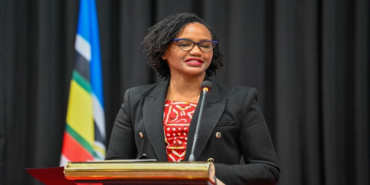
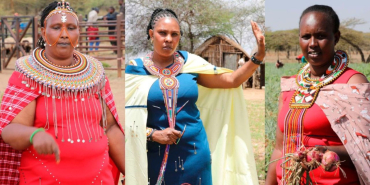

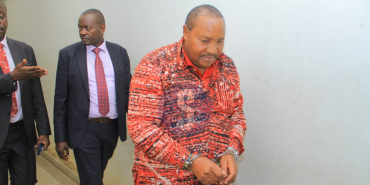
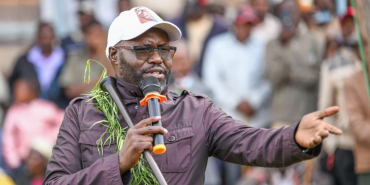
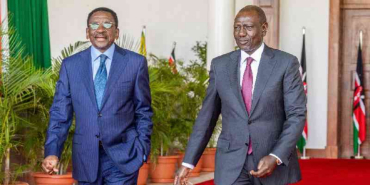






Comments
📢 Help Me Continue My…
Permalink
📢 Help Me Continue My Medical Education at University of Nairobi 🏥🎓
Hello everyone, my name is Evans Odhiambo Onyango, a first-year Kenyan medical student at the University of Nairobi. I did my K.C.S.E in 2023 from Kisii School and qualified to do Bachelor of Medicine and Surgery at UoN.
But today, I am facing a major challenge—I cannot afford my tuition fees, threatening my dream carrier.
Due to my placement in Band 5, under New Kenyan Funding Model for University Students, my first semester, my total fee was KES 118,450, and I have managed to raise KES 30,000 through small bursaries. However, I still have an outstanding balance of KES 88,450. This brings my total first year balance to the one written below. I might not be allowed to sit for my upcoming End of Year exams.
📌 Annual Household Fees: KES 236 900
📌 Current Annual Balance: KES 206 900
My parents are unable to support me financially since both of them are casual laborers whose earnings are far way below the amount I am required to pay.
I therefore humbly request well-wishers, organizations, or anyone willing to support me achieve my dream. Any contribution, big or small, will go a long way in keeping my dream alive. I'll really appreciate.
You can reach out to me via Mobile No: +254115282379 or my dad via +254723731339 for any inquiries, details, get fee statements or to verify any of these. Thank you.
I know that this might not…
Permalink
I know that this might not be the appropriate channel to share this. But I am in dire need of your support. I used this very channel to ask for help after passing my K.C.P.E and yet I had no one to fund my secondary high school education. A well-wisher chipped in and helped me pay my Form 1 fees at Kisii High School. Unfortunately COVID struck and he lost his job, that only meant that he couldn't support me anymore. From there I have been surviving on minor bursaries and great help from the school.
I hereby plead with you to read out my story below, and help me in achieving my dream:
📢 Help Me Continue My Medical Education at University of Nairobi 🏥🎓
Hello everyone, my name is Evans Odhiambo Onyango, a first-year Kenyan medical student at the University of Nairobi. I did my K.C.S.E in 2023 from Kisii School and qualified to do Bachelor of Medicine and Surgery at UoN.
But today, I am facing a major challenge—I cannot afford my tuition fees, threatening my dream carrier.
Due to my placement in Band 5, under New Kenyan Funding Model for University Students, my first semester, my total fee was KES 118,450, and I have managed to raise KES 30,000 through small bursaries. However, I still have an outstanding balance of KES 88,450. This brings my total first year balance to the one written below. I might not be allowed to sit for my upcoming End of Year exams.
📌 Annual Household Fees: KES 236 900
📌 Current Annual Balance: KES 206 900
My parents are unable to support me financially since both of them are casual laborers whose earnings are far way below the amount I am required to pay.
I therefore humbly request well-wishers, organizations, or anyone willing to support me achieve my dream. Any contribution, big or small, will go a long way in keeping my dream alive. I'll really appreciate.
You can reach out to me via Mobile No: +254115282379 or my dad via +254723731339 for any inquiries, details, get fee statements or to verify any of these. Thank you.
My hope lies on whoever will read this and be touched.
Add new comment